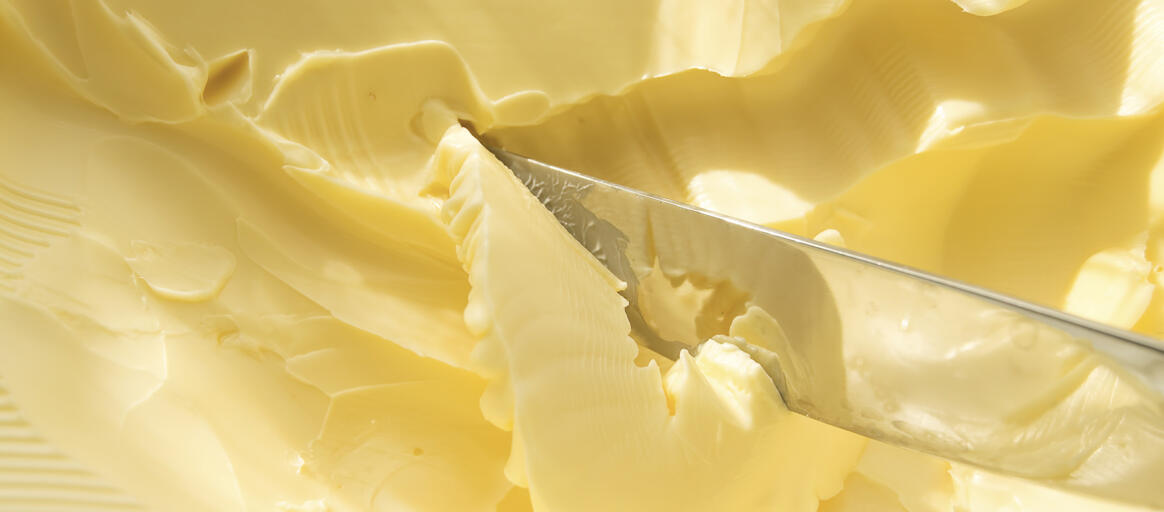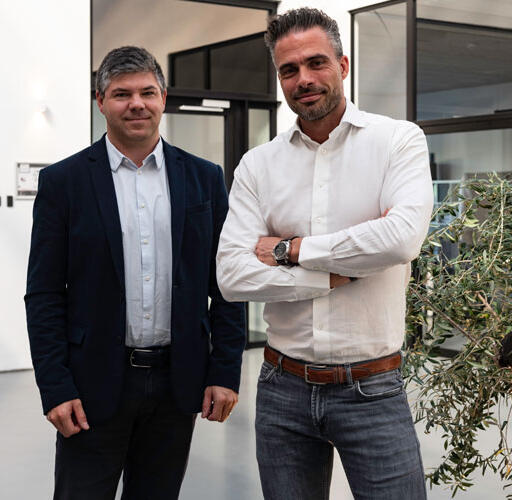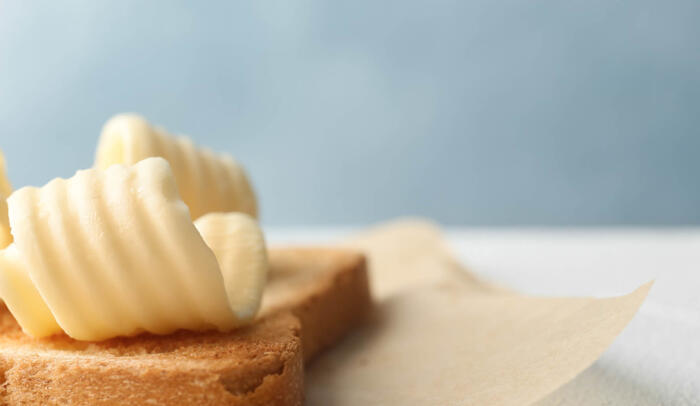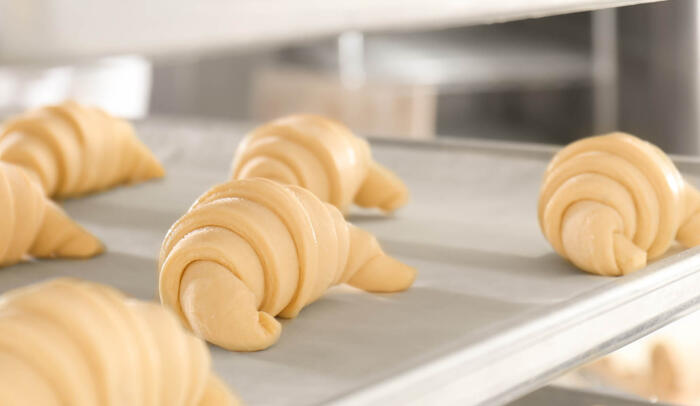Ready-to-use salt brine from ZOUTMAN wins over Aveno
Aveno is well-known producer of oils, fats and margarines. The thriving food company had been hampered by limited capacity at its former production site in Vlaardingen in the Netherlands for some time. As such, it invested in a brand new production facility in the port of Antwerp in 2017. All the machinery was relocated, except for the brining machine, which was not reinstalled. And it is still not up and running a year and a half later, since the temporary solution provided by ZOUTMAN has been to everyone's liking. The ready-to-use brine from the Roeselare-based company outperforms the brining machine in terms of cost-effectiveness and user-friendliness.

In order to be classed as 'margarine', a product needs to contain 80% fat. Since brine largely consists of water, it is ideal for adding as flavour, in the right dosage.
Ready-to-use salt brine as an alternative to the brining installation
"It was a huge task to get the new plant up and running by the start of 2017," explains David Raedts, Supply Chain Manager at Aveno. "All of the machinery had to be moved from Vlaardingen to Antwerp. Stopping production for long periods was not an option for us. As such, we needed to work in phases and make priorities. Thanks to ZOUTMAN, we were able to postpone the reinstallation of our brining machine."
Aveno needs a lot of brine to produce margarine. The food company used a brining machine in-house for many years, to process bulk salt into brine. "When ZOUTMAN heard about our plans to relocate, they came at the right time with an interesting alternative to our brining machine: ready-to-use salt brine. Instead of having to make brine in-house, ZOUTMAN can deliver it ready-to-use on our site. It saves a lot of hassle."

Who is Aveno?
Aveno has for many years been a well-known supplier of oils, fats and margarines for the food service. With a product portfolio containing more than five hundred references, the company markets itself as a one-stop shop. This formula is appreciated throughout the sector, far beyond Belgium's borders. Food manufacturers are now also starting to find their way to Aveno. To such an extent that this has become the fastest growing market for the Antwerp-based company. As such, Aveno is enjoying spiralling fortunes: the team currently consists of 40 people who last year generated a turnover of €30 million. And it looks as though this result will only improve in the coming years.
More efficient, safer and cheaper
According to Christophe Vermote, Sales Manager at ZOUTMAN, salt brine is an especially complex product. "Companies that make brine in-house can never rule out small deviations in the salt concentration. Even the slightest deviation can have a major impact on the taste of the product and/or the rest of the production process. ZOUTMAN's ready-to-use brine is produced under strict conditions and guarantees the end user a perfect salt concentration every time. This solution is consequently much more efficient and safer than making brine in-house," he explains.
But it is above all the cost aspect that has won over Aveno. David Raedts explains: "The additional cost of the ready-to-use brine is offset by the savings made in water and energy consumption. In addition, we no longer need to use softening salt. And as the icing on the cake, the maintenance and upkeep costs of the brining installation have been completely eliminated. Our brining installation was already rather dated in any case, so there is a good chance that we will have to envisage spare parts to get it going again. That would cost a lot more than purchasing ready-to-use brine from ZOUTMAN. That's why we are currently considering working permanently with ready-to-use brine.
The additional cost of the ready-to-use brine is offset by the savings made in water and energy consumption.
Reliable deliveries
For Supply Chain Manager David Raedts, the reliability of suppliers is one of the most crucial aspects. "With the relocation of our production to Belgium, we wanted a local supplier we could count on, both in terms of deliveries and quality. Our market analysis revealed that ZOUTMAN was the most reliable in both aspects. In fact, ZOUTMAN has exceeded our expectations. The lighting-fast service and technical know-how of their employees is impressive. ZOUTMAN proactively thinks along with us and continues to invest in solutions that take away all the hassle for us," he says.
Aveno recently discovered yet another example of these advantages. It currently stores the brine in a temporary storage tank. This tank does not have any level meters, so the tank sometimes runs empty before anyone realises. To avoid this situation, ZOUTMAN proposed installing a brine tank with pressure probe. This pressure probe is connected to an internet platform that allows both ZOUTMAN and the customer to monitor the brine levels. If the brine falls below a critical level, the customer automatically receives a notification that he needs to make a brine order. "Yet another solution that offers a specific answer to a genuine need. ZOUTMAN is a partner that food companies can really count on," believes David Raedts.
Salt brine and margarine
In order to be classed as 'margarine', a product needs to contain 80% fat. Since brine largely consists of water, it is ideal for adding as flavour, in the right dosage. "However, salt has other functions", explains David Raedts. "It acts as a preservative to a certain degree, and prevents splashes in the pan. The amount of brine added varies from region to region, and is usually between 2% and 8%.
After delivery, the brine is automatically transported to a tank in the production department, where it is then mixed with aromas, emulsifiers and colourants. At the same time, the necessary oils are mixed in a second tank. These two components are combined in a mixer, in which the product is processed to achieve the right consistency. The margarine is then automatically sent to the filling lines, where it is filled in various types of packaging.
Aveno has 130 margarines in its product range, split into three categories: bakery margarines, baking and roasting margarines and 'tropical' margarines. 60% is sold under their in-house Delizio brand, while the rest is private label (the same proportion as for the rest of the product range).


